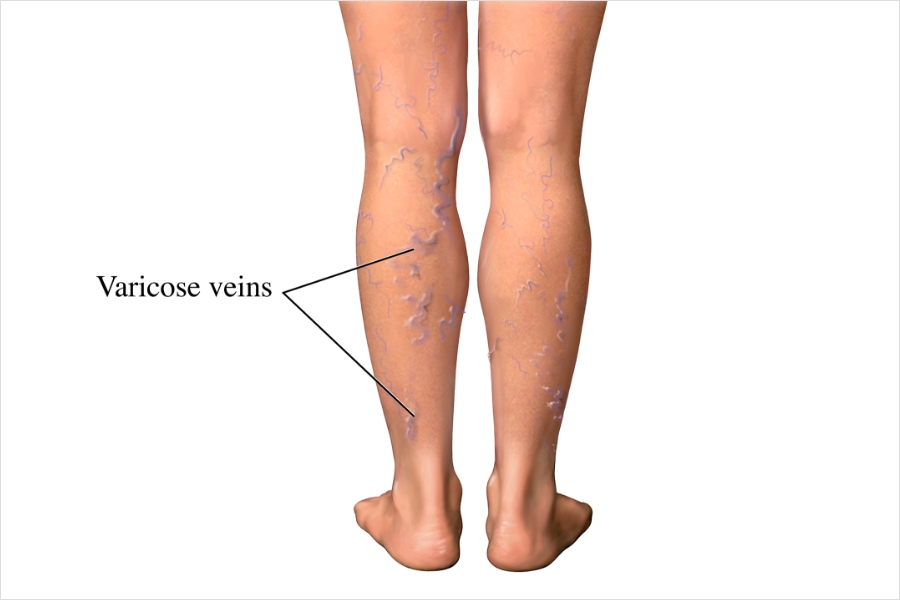Understanding Varicose Veins: Symptoms, Treatment Options, and the Benefits of Non-Surgical Treatments
Varicose veins are a common condition that affects millions of people, particularly women. These swollen, twisted veins, most often seen in the legs, can be a source of discomfort and aesthetic concern. While they are usually not dangerous, they can sometimes lead to more severe health issues if left untreated. In this blog, we'll cover the symptoms, treatment options, and the growing popularity of non-surgical treatments for varicose veins.
What Are Varicose Veins?
Varicose veins develop when the valves in your veins fail to work properly, causing blood to pool and veins to enlarge and twist. This commonly occurs in the legs because standing and walking increase the pressure in the veins of the lower body. While many people think of varicose veins as purely cosmetic, they can cause a variety of symptoms.
Symptoms of Varicose Veins:
The symptoms of varicose veins can range from mild to severe. Common symptoms include:
- Visible, Twisted Veins: The most noticeable sign is the appearance of swollen, blue or dark purple veins just beneath the skin’s surface.
- Aching or Heaviness in the Legs: Many people experience leg pain or a feeling of heaviness, especially after prolonged standing or walking.
- Swelling: Varicose veins can cause swelling in the lower legs, ankles, and feet.
- Itching Around the Veins: Skin around the affected veins may become itchy or irritated.
- Skin Discoloration and Ulcers: In severe cases, varicose veins can lead to skin discoloration, hardening, or ulcers, particularly near the ankles.
If you experience significant pain, swelling, or changes in skin color, it’s important to consult a healthcare professional to rule out more serious conditions like deep vein thrombosis (DVT).
Treatment Options for Varicose Veins:
There are various treatment options for managing varicose veins, ranging from conservative approaches to more invasive procedures. The choice of treatment depends on the severity of the condition, symptoms, and personal preferences.
1. Conservative Treatments
- Lifestyle Changes: Simple measures such as elevating the legs, avoiding long periods of standing, and maintaining a healthy weight can alleviate symptoms.
- Compression Stockings: These specially designed socks improve circulation by applying pressure to the legs, helping veins move blood more efficiently. They are often the first line of treatment.
2. Surgical Treatments
- Vein Stripping: This traditional surgical procedure involves removing the affected veins through small incisions. While effective, it requires anesthesia and has a longer recovery period.
- Ligation: This procedure ties off the affected vein to prevent blood from flowing through it, which can reduce symptoms but is often considered invasive.
3. Non-Surgical Treatments
Non-surgical treatments have become the preferred option for many patients due to their minimally invasive nature and quicker recovery times. These include:
- Sclerotherapy: This involves injecting a solution into the varicose vein, causing it to collapse and gradually disappear. Sclerotherapy is effective for smaller veins and requires no anesthesia.
- Endovenous Laser Treatment (EVLT): A small laser fiber is inserted into the affected vein to heat and collapse the vein wall. Over time, the body absorbs the treated vein, and circulation improves. EVLT is quick and causes minimal discomfort.
- Radiofrequency Ablation (RFA): Similar to EVLT, RFA uses heat from radiofrequency energy to close off the vein. It’s a safe and effective alternative to vein stripping with fewer risks and faster recovery.
- VenaSeal: This newer procedure involves sealing the vein with a medical adhesive, causing the varicose vein to close and the body to reroute blood through healthier veins.
- Microwave Ablation: This is an innovative, non-surgical treatment option for varicose veins. It uses microwave energy to safely heat and close off damaged veins, improving blood flow and relieving symptoms. With minimal discomfort, a short recovery time, and no large incisions, this outpatient procedure offers an effective solution for those looking to treat varicose veins without surgery.
The Benefits of Non-Surgical Treatment for Varicose Veins:
Non-surgical treatments like sclerotherapy, EVLT, and RFA offer several advantages over traditional surgery. Some of the key benefits include:
- Minimally Invasive: These procedures are performed through tiny incisions or injections, reducing the need for general anesthesia and lowering the risk of complications.
- Quicker Recovery: Since non-surgical treatments don’t involve removing the vein, recovery is faster. Most patients can resume normal activities within a few days, with little to no downtime.
- Less Pain and Discomfort: Non-surgical methods like EVLT and RFA involve less pain during and after the procedure compared to traditional vein stripping.
- Effective Results: Studies show that non-surgical treatments are highly effective in reducing symptoms and improving the appearance of varicose veins. Most procedures boast a success rate of over 90%.
- Outpatient Procedure: These treatments are usually performed in a doctor’s office or clinic on an outpatient basis, meaning patients can go home the same day.
- Long-Term Relief: Non-surgical treatments not only address the aesthetic concerns of varicose veins but also provide long-lasting relief from symptoms such as pain, swelling, and heaviness.
Conclusion:
Varicose veins are a common condition, but they don’t have to disrupt your life. Whether you’re dealing with mild symptoms or more serious complications, there are a variety of treatment options available, including lifestyle changes, surgical methods, and non-surgical treatments. Non-surgical options like sclerotherapy, laser treatment, and radiofrequency ablation offer effective, minimally invasive solutions with shorter recovery times and long-lasting relief.
If you’re experiencing varicose vein symptoms, consult a healthcare provider to determine which treatment option is best suited for you.
#VaricoseVeins #VeinTreatment #NonSurgicalTreatment #Sclerotherapy #LaserTherapy #VaricoseVeinRelief #EVLT #RFA #VeinHealth #MinimallyInvasive #WomensHealth #LegPain #VeinCare #HealthyCirculation #VaricoseVeinAwareness
